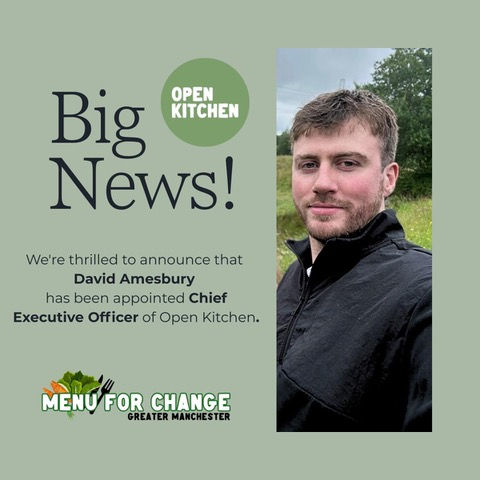Introducing Xcess: The Independent Food Redistribution Network
- Corin Bell

- Feb 1, 2021
- 3 min read
Updated: May 29, 2025
We've teamed up with the UK's biggest independent social redistributors in a new movement against food surplus, waste and food poverty
As you will no doubt know, we are passionate about reducing food waste by reusing it to create delicious meals. So, we're super excited to tell you all about the formation of Xcess: The Independent Food Redistribution Network, which was established to develop national strategies to confront the nation's food surplus and marshal it for social and environmental purposes.
Xcess will work with the food industry and other agencies to tackle food surplus, its wastage and poverty in the UK's most deprived communities. Through collaboration of skills, expertise and good practice, the network will focus on unlocking untapped surplus rather than competing for what is already redistributed, and aim to stop food surplus becoming a permanent problem in the UK's food system. It will work to utilise this edible resource to ensure that nutritious food can be accessed by everyone, creating more resilient communities by supporting people's health and general wellbeing.
In doing so, Xcess will help to meet the UN Sustainable Development Goal 12.3 which calls on all nations to halve food waste and reduce food loss by 2030 as well delivering vital support for communities in need nationwide.
Members include CEOs and stakeholders from across the redistribution sector: Neil Reid (Blackpool Food Bank), Mark Game (The Bread and Butter Thing), Laura Winningham (City Harvest), David France (Eggcup), Mary McGrath (FoodCycle), Rene Meijer (Food Works), Richard Humphrey (His Church), Astra Towning (Rethink Food), Yvonne Thomson (UK Harvest), Megan Blake (University of Sheffield) and Julian Parfitt (The Anthesis Group).
Xcess members vary dramatically in size, scale and operational model but its collective impact is significant and UK-wide. Amongst its members:
· Blackpool Food Bank is a network of 70 local partners transforming lives locally.
· The Bread and Butter Thing runs a weekly affordable food service for over 12,000 members across the North of England.
· City Harvest receives and collects food from all over the UK and delivers to 340 community projects and charity groups across London supporting organisations from soup kitchens to women's refuges.
· Eggcup's affordable food service supports members on low incomes across the Lancaster district.
· FoodCycle works to reduce food poverty and loneliness by turning surplus food into nutritious community meals, all over the country.
· Food Works repurposes surplus food into meals and grocery boxes to make sustainable food accessible to all in Sheffield.
· HIS Church is an emergency goods redistribution charity, focused on providing food and supplies to those who need it most. It is currently distributing 200,000 meals a week across a network of 15,000 charities.
· Rethink Food works with schools, businesses and communities to educate and empower people to live food secure lives.
· UK Harvest delivers education programmes alongside its food redistribution operations across the south coast of England and London.
Together, we are united in the common purpose of intercepting edible surplus to create meaningful and lasting social change.
Kicking off its programme of action includes:
· Working with the IGD, WRAP and DEFRA to identify untapped sources of surplus food, unpick the barriers to its redistribution and unlock it for usage and consumption.
· Establishing a formal code of conduct for all social food redistribution agencies to ensure continued high standards across all organisations working in the area.
Based on WRAPs major 2016 research, and progress made since that was published, it is estimated that there is the potential to increase redistribution from retail and manufacture by around 190,000 tonnes compared to 2018, approximately 80,000 tonnes from retail and 110,000 tonnes from manufacturing. For the latter, this includes both finished product and more challenging material such as work in progress. This does not include potential edible surplus from both HaFS and primary production.













